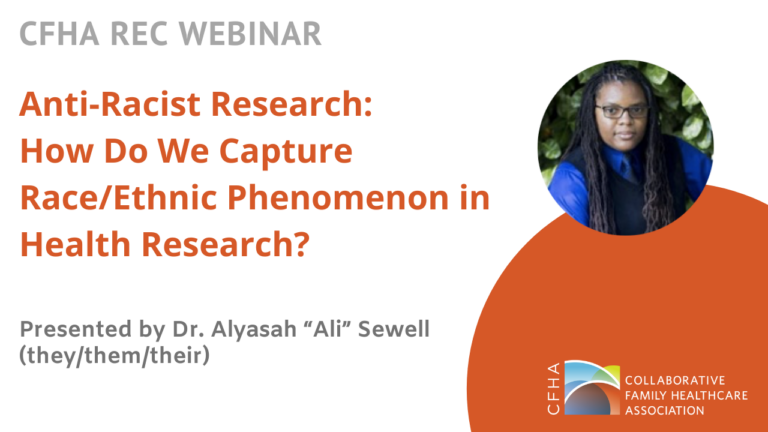REC’s Mission
To grow interest and enthusiasm among CFHA members regarding research and to create opportunities for CFHA members to actively participate in research and program evaluation related to collaborative, integrated care. The work of the committee will focus on means to provide education and information that will assist members to: understand and/or use data; effectively evaluate research and outcome data; and understand approaches for evaluating and improving programs.
Research in this context refers broadly to a variety of forms of systematic inquiry including formal scientific research, social research, and economic research, as well as program evaluation, quality improvement and performance improvement.
Mentorship and Learning Opportunities
If you are a CFHA member who is interested in additional mentorship in the domains of quality improvement, program evaluation, or research, the Research and Evaluation Committee offers the following opportunities for deeper engagement and learning:
- REC Fellowship: This is a wonderful opportunity for trainees and early career professionals to engage more deeply with research and network with other integrated care researchers. REC Fellows receive a $1000 stipend and the opportunity to present at the annual CFHA conference. In addition, winners are eligible to receive guidance and mentorship from the REC Leadership Council throughout their project period.
- Research and Evaluation Training Track: Each year at CFHA’s annual conference, the REC curates a “Research and Evaluation Training Track.” The goal of Research and Evaluation Training track presentations is to equip attendees with practical knowledge and skills that will enhance their ability to engage in research or quality improvement projects in real-world healthcare settings. The primary focus of these talks is more about providing hands-on training and “how to” lessons, rather than simply presenting study results.
- Poster walk: Conference attendees can sign up to attend a “poster walk” wherein they will be a part of a small group tour of selected research posters led by a well-established integrated care researcher. This is an excellent networking opportunity and learning experience for those seeking greater exposure to emerging integrated care research.
- Webinars: The REC offers regular webinars on topics related to quality improvement/program evaluation/research in an integrated healthcare setting. Recordings of past webinars are available on our website.
- IPC Education and Consultation series: Each month, in collaboration with APA Division 38 and the Society for Behavioral Medicine, REC leadership co-hosts a monthly education and consultation call. During these calls, an educational topic is presented during the first 20 minutes, and the remaining 40 minutes are open for consultation and discussion among attendees. For the 2023-2024 academic year, these calls will take place on the following dates at 12 PM Eastern time (Zoom links and topics to be released at the end of the month):
- September 12
- October 10
- November 14
- January 9
- February 13
- March 12
- April 9
- May 14
- One-on-one research mentorship from a senior integrated care researcher is available by request. If you are interested in research mentorship, contact Jackie Poor Hahn (jhahn@cfha.net), and will connect you with us. When we receive word of someone interested in research mentorship, we reach out to our leadership council to see who is available and willing. We will maintain a waitlist if there are not sufficient mentors available at the time a request comes in.
Leadership

Christina Eyman

Jennifer Funderburk
Key Information
MEETING PARTICIPANTS:
Committee Meetings are open to all. Voting members must be CFHA members.
MEETING TIME:
- Wednesday, September 27th 12-1 pm ET
COMMITTEE RESPONSIBILITIES:
- Increase the presence of high-quality collaborative care/integrated primary care research at the CFHA annual conference
- Create opportunities for members to learn how to conduct collaborative care/integrated primary care research
- Conduct surveys/assessments to establish members’ and potential members’ wants/needs as they relate to research, and work to match our committee’s efforts with said wants/needs
- Develop a method of communicating with members about research via the CFHA social media outlets
- Create opportunities for CFHA members to actively participate in research
- Facilitate formal mentoring for student members/new professionals who desire to learn more and conduct collaborative care/integrative research.
Webinars

Research & Evaluation Committee Webinar: Poster Tips N Tricks
As we approach the CFHA annual conference in San Antonio, TX, some of you may be thinking about starting your poster preparation. Or are you perhaps going to a different […]

Abstract Prep 101: How to Prepare a Successful Abstract for the CFHA Annual Conference
Join the Research and Evaluation Committee and the San Antonio Conference Planning Committee for this special webinar on Tuesday, March 12th at 12pm ET // 11am CT // 10am MT […]
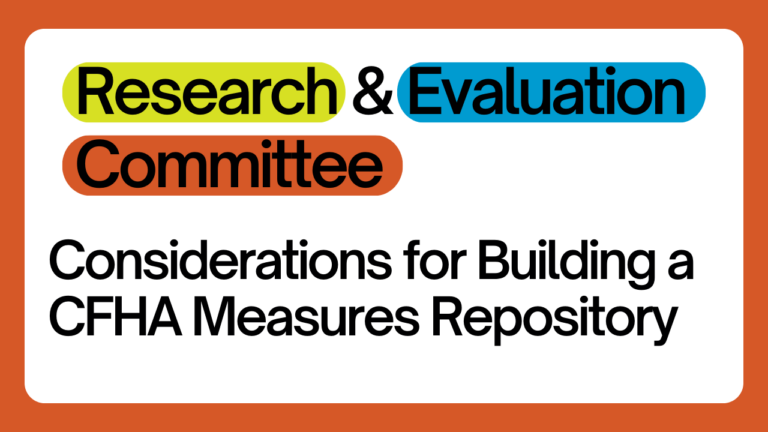
Considerations for Building a CFHA Measures Repository
Measure repositories can be a useful resource for researchers, clinicians, and healthcare system leaders when designing studies and evaluations of clinical practices. This presentation will discuss some of the effective […]

REC Webinar: Considerations for Effective Scholarly Activity Mentorship
Many members of CFHA have expressed interest in learning more about program evaluation, quality improvement, and research, yet it can be difficult for those in clinical roles to find effective […]

Learn about Lean: An Evidence Informed, Data-Driven Strategy for Quality Improvement in Healthcare
The Lean Toyota Production System (TPS) principles are not new but relatively new to healthcare as an evidence-based approach for improvements. Lean supports business operations focusing on: • Customers and […]
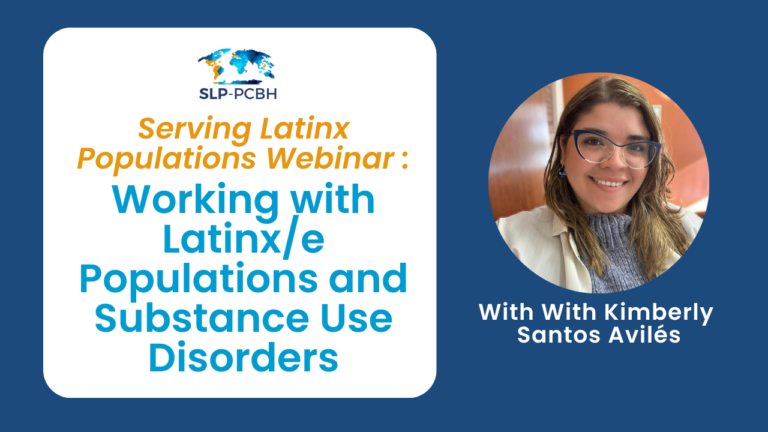
SLP Webinar: Working with Latinx/e population and substance use disorders
Description: We will be discussing about substances use disorders among Latinx/e population and what to consider during exploration, specifically alcohol use, cannabis use and opioids. Objectives: 1. Explain common substance […]
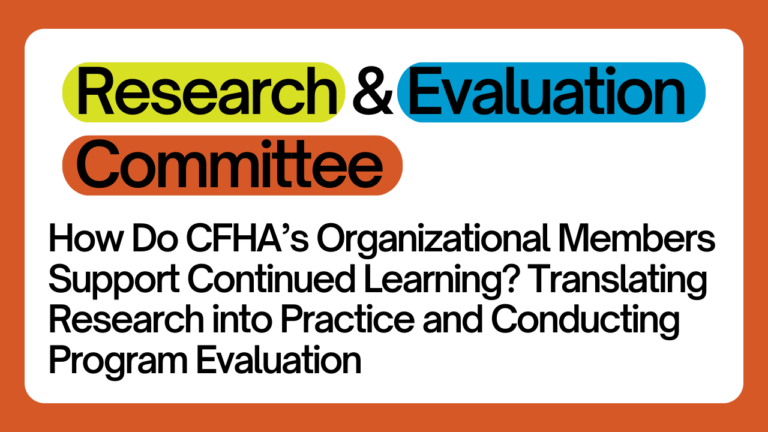
How Do CFHA’s Organizational Members Support Continued Learning?
Organizational memberships are becoming increasingly popular at CFHA. These organizations have more systematic interests around research supporting healthcare teams in providing integrated care within their clinical practices. This talk will […]
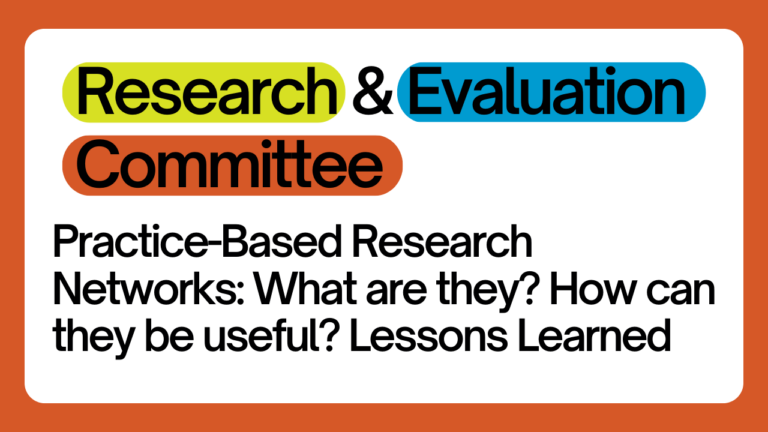
REC Webinar – Practice Based Research Networks: What are they? How can they be useful? Lessons Learned
Identifying ways to collect data from multiple clinics is essential to efforts to learn about best evidence-based practices across settings and disseminate the findings. This talk will describe what Practice […]

REC Meeting: How to Conduct Research to Impact Workforce Policy and Practice
A robust behavioral health workforce is essential to address the country’s worsening behavioral health crisis. Yet, addressing behavioral health needs requires unpacking state and federal policies that drive behavioral health […]
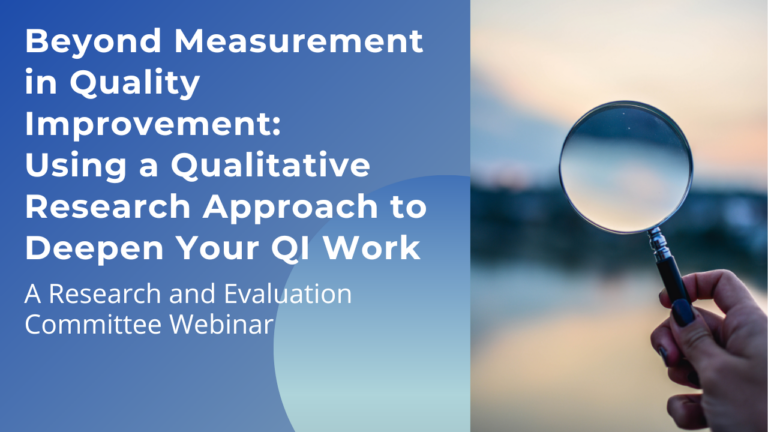
Beyond Measurement in Quality Improvement: Using a Qualitative Research Approach to Deepen Your QI Work
A qualitative research approach can be useful at various stages of a quality improvement project – from developing a deeper and more comprehensive understanding of your problem, to designing an […]
